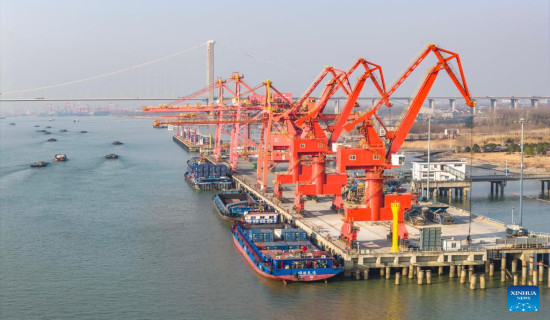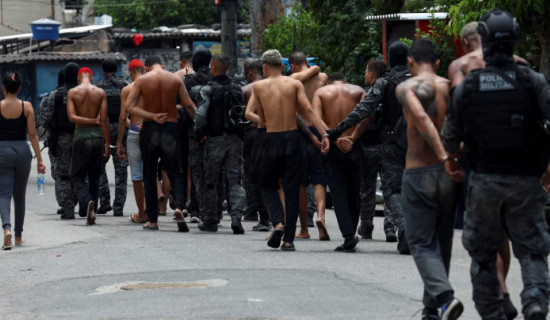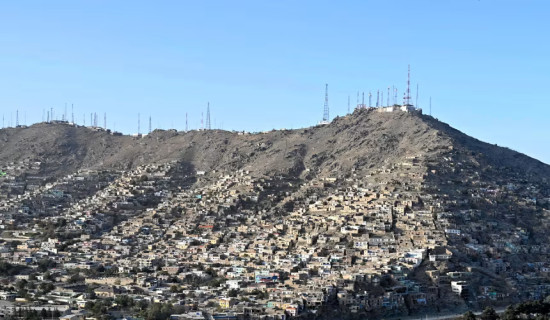- Thursday, 15 January 2026
White House backs off on tariffs on Colombia after agreement on ‘unrestricted acceptance’ of migrants
By Aaron Pellish, Alejandra Jaramillo, Stefano Pozzebon, Priscilla Alvarez and Michael Rios, CNN, Jan.27: The White House said Sunday night that Colombia has agreed to allow the United States to transport repatriated migrants back to the country after two US military planes carrying deportees were blocked by Colombia early Sunday, sparking a flurry of tariff threats between President Donald Trump and his Colombian counterpart.
After Colombian President Gustavo Petro rejected the military planes from landing, stating the US “can’t treat Colombian migrants like criminals,” Trump ordered “emergency 25% tariffs” on all imports from the country that would be raised to 50% in a week, a “travel ban” for Colombian citizens, and a revocation of visas for Colombian officials in the US.
“These measures are just the beginning. We will not allow the Colombian Government to violate its legal obligations with regard to the acceptance and return of the Criminals they forced into the United States!” Trump wrote on Truth Social.
Hours later, Petro threatened a 25% retaliatory tariff increase on the US in a series of social media posts attacking Trump and Secretary of State Marco Rubio. Petro said he objected to the use of military planes and the treatment of migrants but left the door open to Colombia receiving repatriated migrants traveling on civilian planes.
Late Sunday evening, White House press secretary Karoline Leavitt announced the US and Colombia had agreed to the “unrestricted acceptance” of migrants from Colombia and would allow them to be returned to the country “including on US military aircraft, without limitation or delay.”
Leavitt said in the statement the US would not sign the tariffs or economic sanctions Trump ordered “unless Colombia fails to honor this agreement.”
Leavitt said tariffs and financial sanctions will be paused, but visa sanctions against Colombian officials and stricter customs inspections of Colombian nationals and cargo ships ordered by Trump earlier Sunday will remain in effect “until the first planeload of Colombian deportees is successfully returned.”
Colombian Foreign Minister Luis Gilberto Murillo confirmed late Sunday — just moments after the White House’s statement — that US deportation flights have resumed.
The escalating trade threats mark the first time Trump took major action against another country over his immigration policy since he took office last week.
Rubio said in an statement Sunday afternoon that Colombian officials had approved two military flights carrying migrants to Colombia and then revoked the authorization once they were en route. CNN reported earlier, based on a review of documents, that Colombian officials had approved the flights.
“Colombian President Petro had authorized flights and provided all needed authorizations and then canceled his authorization when the planes were in the air. As demonstrated by today’s actions, we are unwavering in our commitment to end illegal immigration and bolster America’s border security,” Rubio said.
Petro disputed that he had given authorization, writing on X after the secretary of state’s statement, “I will never allow Colombians to be brought in handcuffs on flights. Marco, if officials from the Foreign Ministry allowed this, it would never be under my direction.”
Petro also called on US citizens living in Colombia illegally to “regularize” their stay, without offering specifics. “American citizens who wish to do so can be in Colombia, I believe in human freedom,” he wrote on X, adding: “You will never see me burning a US flag or carrying out a raid to return handcuffed illegal immigrants to the US.”
CNN had previously reported Trump administration officials were surprised and frustrated when Petro said he was blocking US deportation flights from entering the country. Sources within the Colombian government were also caught by surprise by Petro’s post.
The US Embassy in Bogota had suspended visa processing in retaliation for Colombia’s refusal to accept repatriation flights, the State Department said in a statement Sunday evening. CNN previously reported on the suspension of visa processing. The suspension applies to immigrant and non-immigrant visas, which typically number in the thousands each day. Rubio also authorized “travel sanctions on individuals and their families, who were responsible for the interference of U.S. repatriation flight operations,” the statement said.
The issuance of visa restrictions on individuals from allied countries is an extraordinary move, as it is one that is typically reserved for adversaries or individuals who have committed human rights abuses. Colombia is a major non-NATO ally of the United States. It is unclear how many Colombian officials the US has imposed visa restrictions on.
Trump’s reaction to Colombia’s rejection of repatriated citizens marked the first major clash with another country over immigration issues since he began his second term.
“You can’t go out there and publicly defy us in that way,” a Trump administration official told CNN. “We’re going to make sure the world knows they can’t get away with being nonserious and deceptive.”
US using military aircraft to return migrants
The US began using military aircraft to return recent border crossers back to their countries of origin last week. On Thursday, the US returned migrants to Guatemala using military planes.
White House border czar Tom Homan said Sunday he expects military flights transporting deported migrants to continue daily, partly as a message to other nations.
The Department of Defense “has helped administrations before, but not at this level. So it’s a force multiplier, and it’s sending a strong signal to the world. Our border’s closed,” Homan told ABC News.
The US is also asking Mexico for help repatriating its nationals via land ports of entry along the US-Mexico border, though Mexico also appeared to turn around a military flight heading for the country last week.
Brazil joined Colombia on Sunday in condemning the Trump administration’s handling of repatriated migrants on deportation flights, denouncing the treatment of Brazilian nationals who arrived in the country Friday as “degrading.”
Brazilian authorities said they found 88 handcuffed deportees on a US flight headed to Belo Horizonte, Brazil, that landed in Manaus due to a “technical error.” Brazilian officials did not authorize the plane to continue on due to “the use of handcuffs and chains, the poor condition of the aircraft, with a faulty air conditioning system, among other problems,” and the migrants were transported to Manaus on a Brazilian Air Force flight.
Colombia isn’t a major US trading partner
Colombia is not a major trading partner with the United States, shipping roughly $14 billion worth of goods in 2023, the most recent full year of data, according to Comtrade, an authority on trade data. Most of Colombia’s exports to the United States were minerals, oil, metals and coffee.
Coffee prices have shot higher over the past year, and the tariffs, if enacted by the Trump administration, could have made prices even more expensive for American consumers. That’s because importers pay the tariffs and often pass the increased costs on to consumers.
Although tariffs can be an effective negotiating tool, they are generally disliked by economists, who believe they are inflationary and can ignite trade wars, which send prices even higher. That is not a universally held view, though. Jamie Dimon, CEO of JPMorgan Chase, recently told CNBC that if tariffs help with national security and cause a little bit of inflation, then people should “get over it.”
But Trump has promised across-the-board tariffs on other countries as soon as this week if their goods aren’t manufactured in the United States. Those tariffs could dramatically boost prices for Americans.
Experts urged caution amid escalatory feud
Economic and foreign policy analysts had urged Colombia to take caution after getting involved in a diplomatic feud with the US over the deportation flights.
A think tank of former foreign ministers and analysts implored the Colombian government to preserve its relationship with Washington through dialogue and mutual respect.
“The Colombian Council on International Relations (CORI) calls on the national government to exercise its foreign policy with responsibility, pragmatism and strategy. … There is no room for improvisation in international relations,” the group said in a statement.
The group also said migration flows must be addressed in compliance with bilateral agreements, noting that in 2024, 124 deportation flights were carried out from the US to Colombia with the approval of both governments, in what it called a “historic and permanent mechanism.”
CORI added that both nations must avoid commercial retaliation, which it said would only harm Colombia.
The head of the Colombo American Chamber of Commerce, Maria Claudia Lacouture, echoed those sentiments in a post on X, saying, “We call for sanity, dialogue and common sense, prioritizing diplomatic channels to overcome this serious crisis in the shortest possible time.”
She warned that if the US imposed 25% tariffs on Colombian products, the impact would be immediate and devastating.
“In coffee alone, more than 500,000 families depend on this sector. In flower farming, thousands of single mothers would lose their livelihood. And we can continue adding sectors that will be affected,” she said.
This story and headline have been updated with additional developments.
CNN’s David Goldman, Omar Fajardo, Duarte Mendonça, Julia Vargas Jones, Jennifer Hansler and Gabriela Frías contributed to this report.









-original-thumb.jpg)







